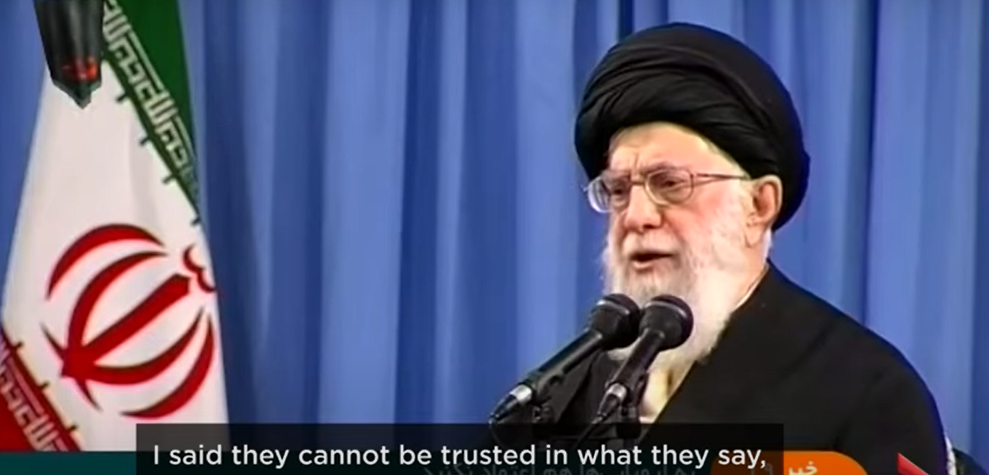The Middle East is undergoing changes and upheavals and the alliances in it change rapidly, but one thing remains constant in it and that is Iran with its extreme religious ideology that has two main goals.
Spreading the ideas of Khomeini’s Islamic revolution since 1979 and spreading throughout the Middle East through the establishment of Octopus arms whose head is in Tehran.
Iran has already established branches in Lebanon, Syria, Iraq, Yemen and the Gaza Strip through Shiite militias loyal to it such as Hezbollah and the Houthi rebels, as well as Sunni militias such as Hamas and Islamic Jihad.
Iran is succeeding in its plan, despite the heavy sanctions imposed on it by the Western countries, and it is rapidly approaching the ability to produce a nuclear bomb. If this happens, the balance of power in the Middle East will change drastically and an arms race will also begin, other countries such as Saudi Arabia, Egypt and Turkey will also act quickly to arm themselves with nuclear weapons.
In recent weeks, winds of optimism have been blowing in the Middle East about the possibility of resolving several regional conflicts in Yemen, Iraq and Lebanon following the rapprochement between Saudi Arabia, which is at the head of the Sunni camp, and Iran, the leader of the Shia camp, after the signing of the agreement between them, brokered by China.
Contacts between Saudi Arabia and Iran were accelerated to open embassies in Tehran and Riyadh, Saudi King Salman bin Abdulaziz was officially invited to visit Tehran, Saudi Arabia began to get closer to Bashar al-Assad’s regime after a 10-year break and Syrian Foreign Minister Faisal Al-Mikdad visited Riyadh for the first time, Saudi Arabia is also getting closer to the Hamas movement after a break of many years, the Saudi crown prince invited a senior delegation of the movement to visit Saudi Arabia and is ready to release dozens of Hamas terrorist operatives from the Saudi prison.
A Saudi delegation visited Yemen and announced progress in talks with the Houthi rebels to end the war that began in 2014.
The war broke out as a result of a mistaken decision by Crown Prince Mohammed bin Salman and it spread into the territory of Saudi Arabia itself, which was attacked with precision missiles and drones on its cities and oil facilities.
Arab commentators estimate that the rapprochement between Saudi Arabia and Iran may also help solve the problem of electing the new president in Lebanon, the Hezbollah organization has so far failed to elect its former ministerial candidate Suleiman Faranjiya.
One must not be overly impressed by the spirit of reconciliation shown by Iran, it does so out of interests and not out of goodwill, it came to an agreement with Saudi Arabia from a position of strength while Saudi Arabia came to it from a position of weakness.
The main question is the degree of Iran’s commitment to the agreement with Saudi Arabia, at the moment there is an impression that it is in a hurry to implement parts of it, but the question is whether it will abide by it for a long time, especially when one of the main clauses in it is that no country interferes in the internal affairs of another country, which completely contradicts the Iranian policy of expansion in the Middle East.
Iran has not changed and will not change its extreme ideology following the agreement with Saudi Arabia, the 1500-year-old dispute between Sunni and Shia will not disappear quickly, it is simply trying to gain time and strengthen its regional position even more through this agreement, to push the US’s feet out of the Middle East and sabotage the Israel’s normalization agreements with the Gulf states while it moves towards the nuclear bomb.
Shia principles are very flexible and allow Iran to sign alliances for a short time that serve its interests and break them after a short time, therefore, there is nothing to get excited about the agreement between Iran and Saudi Arabia, the Saudis also understand this very well, Iran is the same Iran, the wolf disguised itself for a short time as a peace-seeking sheep but the wolf with the sharp teeth still remains.
Crown Prince Mohammed bin Salman chose out of no choice to get closer to Iran to ensure the continuation of the Saudi regime in view of the weakness of the Biden administration which cannot provide him with protection from the Iranians, he wants to be the next king who leads his country to realize his vision by the year 2030 of development, flourishing and prosperity all over the kingdom without external threats.
Iran has also not changed one of its important goals, which is the destruction of the State of Israel, and it uses the Palestinian problem for this goal and to increase its influence in the region.
It surrounded Israel from several fronts and recently began to implement the doctrine of the unification of all fronts devised by General Qassem Soleimani to attack Israel with rockets, missiles and drones in order to tighten the stranglehold around its neck until the completion of the nuclear bomb project.
Iran estimates that its new strategy now serves it well in dismantling the Arab-American-Israeli alliance against it and will help it thwart an Israeli military attack on its nuclear facilities.
Bottom line, when Iran sees that its alliance with Saudi Arabia has stopped serving the interests for which it was established, it will return without a problem to its violent strategy and find ways to direct its armed militias against Saudi Arabia, this is one of its strategies in the Middle East, using proxies without fingerprints.




